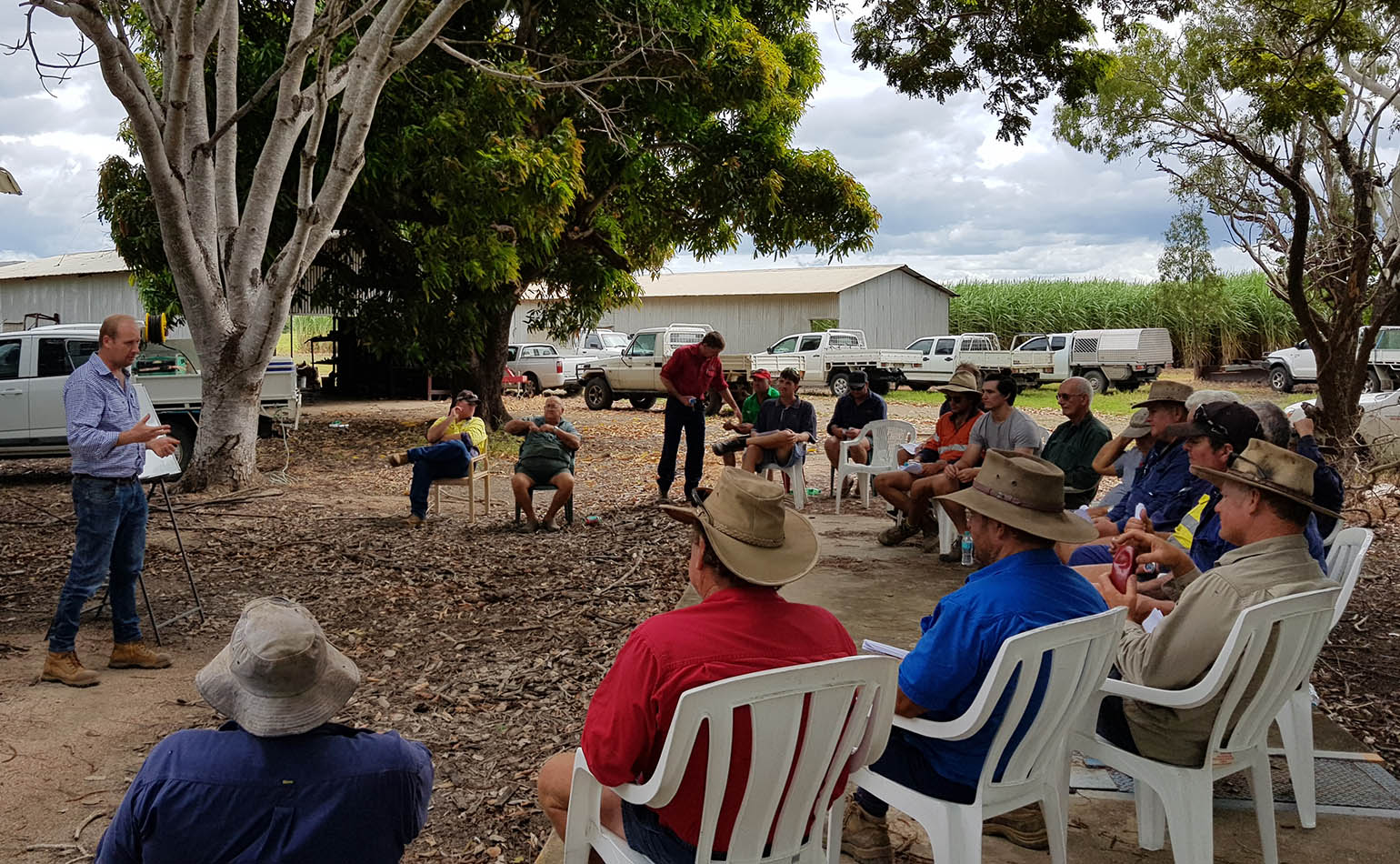The Soil CRC’s Communications Manager, Katherine Seddon, caught up with Rob Milla – Manager at Burdekin Productivity Services, a sugar cane grower group in Queensland, for a five minute chat.
What is exciting about working with the Soil CRC?
We really love the ability to link with others from around the country – farmer groups and researchers that are outside of cane farming can bring new knowledge to our practices. It’s also really exciting to be able to focus on new technology – like novel ways to test soils and being able to feed that information back to our growers.
It’s really refreshing to focus on projects that will deliver new research to our members without the industry politics that sometimes occur.
Some really unexpected gains through the linkages from the Soil CRC have been the relationships that have formed through the CRC that have led to collaborations outside of the work we do with the Soil CRC. Recently we sent some deep soil cores to Griffith Uni for one of their research projects that isn’t a Soil CRC project. The collaborations are far reaching and have a real longevity.
Tell us about Burdekin Productivity Services
Burdekin Productivity Services (BPS) are a not-for-profit grower and miller owned organisation. We are funded through a voluntary levy. Our members pay 7c per tonne of cane crop that is sent to the mill then the mill matches that contribution. We also receive some external funding for specific projects.
We’ve got a really great uptake of membership in our community, with 98% of sugar cane farmers in the district being members. That’s about 530 farmers across 80,000 ha of agricultural land.
The Burdekin region is an hour south of Townsville. BPS covers 80,000 ha extending from Ayr and Home Hill in the north towards Millaroo in the south.
The region is considered the dry tropics, with an average annual rainfall of 960 mm. We have a very distinct wet and dry season – 90% of our rain falls between January and April, although this can be very variable across the region. This year, some areas received 1.5 metres of rain in a three week period.
BPS focuses on providing agronomic support, with a focus on management of pests and diseases and variety distribution to our members. They get access to new varieties that they otherwise wouldn’t. We really believe that communication and relationship with our members is vitally important. We have lots of activities covering a range of topics from pest and disease surveys, right through to extension trials and development work. This increases our engagement with our members, and because of this, our members really trust our staff.
What area and type of farming do you cover?
BPS members are predominantly sugar cane farmers, about 80- 90% of the area is sugar cane farms. The farm sizes average 150 – 200 ha. Most grow sugar cane and some are rotating with a different crop such as legumes. We are a fully irrigated area.
What type of soil do you have?
We have all types of soil in our region. It ranges from high water infiltration rate sandy soil through to heavy clays and sodic duplex soil.
There is a great variability of soils in the region, within farms and even within blocks. We’ve got some fields that have sandy soil at the bottom end and clay at top end. This variability provides many challenges of its own, challenges in crop nutrition and irrigation management.
Situations where there are different soils within a block mean that practices such as furrow irrigation are really tricky to manage, as the amount of water required to apply will vary throughout the paddock. Also, crop nutritional requirements can differ, so multiple soil samples or EM surveys are required to identify zones within a paddock, then appropriate management advice provided.
Another overarching challenge is that as an industry we have to comply with regulations on the amount of phosphorous and nitrogen that you are allowed to apply, so all of that is taken into consideration.
Why did BPS become a participant in the Soil CRC?
When you are involved in any industry, there’s a risk of becoming blinkered and focused only on your own industry and its problems. Being part of the Soil CRC enables us to network outside our region and industry and allows a different set of eyes to address problems. It brings fresh ideas and perspectives. We also believe that we are doing some great things in grower engagement that we wanted share.
What involvement do you have in the projects that Burdekin are working on?
BPS are involved in five current Soil CRC projects. Through these projects, we’ve got some test sites that are looking at companion cropping such as legumes and brassicas within a cane crop to monitor soil fertility. We’ve also been able to share information gathered from some of our previously established soil test sites on soil moisture monitoring devices.
Soil CRC Projects that Burdekin are involved in:
New sensors for measuring soil nutrients (2.2.003) led by Dr Craig Lobsey, USQ
Affordable rapid field-based soil tests (2.2.004) led by Dr Liang Wang, Newcastle
Improving pesticide delivery (3.2.001) led by Dr Yanju Liu, Newcastle
Evaluating alternative rhizobial carriers (3.4.001) Professor Chengrong Chen, Griffith
Improving decision support systems (4.3.002) led by Dr Keith Pembleton, USQ

